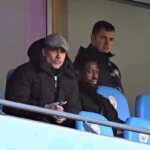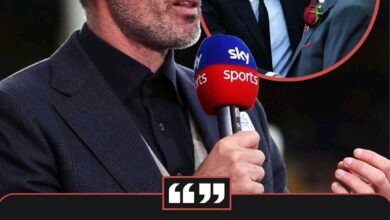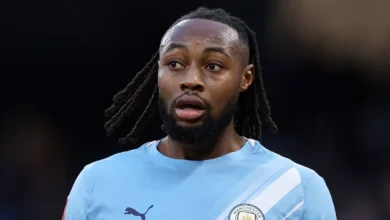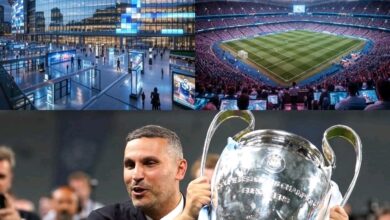Jurgen Klopp is ‘a mirror’ for Ole Werner as RB Leipzig boss opens up on ex-Liverpool coach’s influence after pushing for Bundesliga side to hire him
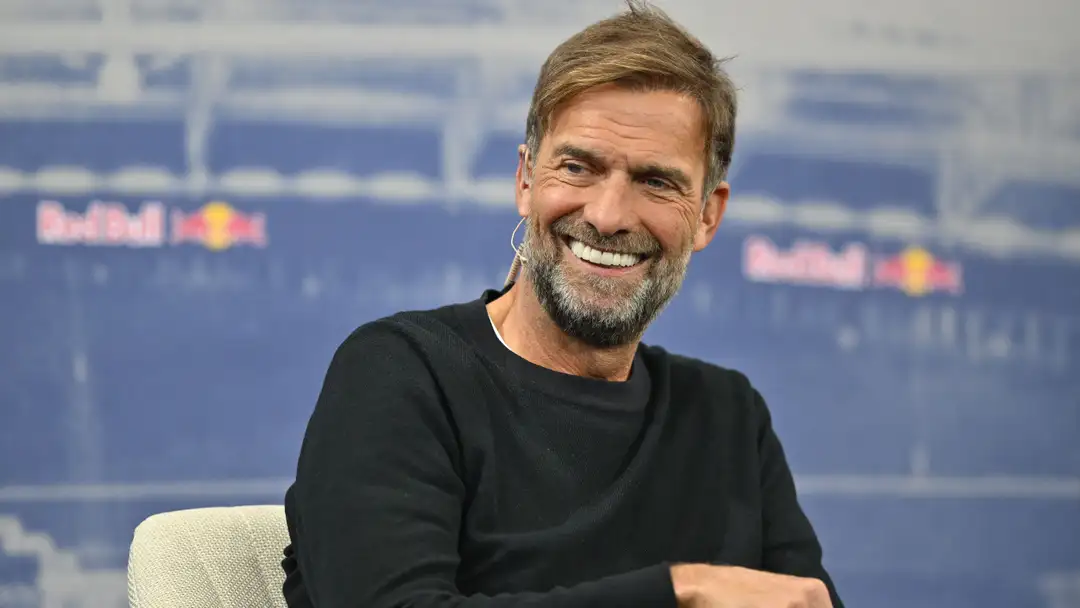
Jurgen Klopp may no longer be pacing the touchline at Anfield, screaming instructions and punching the air after late goals, but his impact on football continues to grow even beyond Liverpool. Since stepping away from management, Klopp’s energy, intelligence, and influence have quietly spread into other corners of the game. One of the most fascinating examples of this ripple effect can be seen in Germany, where the charismatic coach is shaping the future of RB Leipzig through his guidance of the club’s new manager, Ole Werner.
In a recent interview, Ole Werner, now in charge at RB Leipzig, spoke openly about the depth of his connection with Jurgen Klopp — describing the legendary former Liverpool boss as “a mirror” in his career. Those words alone speak volumes. They tell a story of mentorship, respect, and the continuation of a footballing philosophy that has inspired a generation of coaches across Europe. But Werner’s revelations go even deeper. They reveal how Klopp personally pushed for RB Leipzig to appoint Werner, and how he continues to advise him several times a week in his new role as Red Bull’s Head of Global Soccer.
When Klopp left Liverpool in 2024 after nearly a decade of unforgettable success, many expected him to disappear from football for a while, perhaps take a long holiday, recharge, and escape the pressure that came with being one of the most demanding managers in modern history. But that was never really his way. Klopp’s heart beats too loudly for football. Even without being in the dugout, he has found another way to shape the game — this time from behind the scenes, guiding young managers, helping clubs align with his attacking philosophy, and building something new within the Red Bull football family.
And for Ole Werner, this relationship is not just professional — it is deeply personal. The 37-year-old coach admitted that having Klopp as a mentor has transformed the way he sees the game. “Jurgen is like a mirror,” Werner explained. “When I talk to him, I don’t just see my plans or my ideas — I see where I could go wrong, what I could do better, and how I can build a team that plays with identity and courage. He doesn’t tell me what to do; he helps me see things clearly.”
That statement reflects exactly what Klopp has always stood for. During his years at Mainz, Borussia Dortmund, and Liverpool, Klopp built teams that were more than just tactical machines. They were families, built on energy, emotion, and trust. He inspired his players to fight for each other, not just for results but for purpose. That spirit seems to be rubbing off on Werner, who is already implementing similar principles at RB Leipzig.
Leipzig, known for their high-pressing and youthful squad, were looking for a manager who could continue their tradition of aggressive, attacking football but also bring emotional balance and leadership to a dressing room full of young stars. Werner fit that description perfectly — and Klopp, from his role within the Red Bull network, made sure the board knew it. According to several reports, Klopp personally spoke with Red Bull executives and recommended Werner, praising his work at Werder Bremen and his deep understanding of modern pressing football.
It’s easy to see why Klopp believed in him. Werner’s teams play with energy, discipline, and confidence. He focuses on player development and collective responsibility — two traits that Klopp himself mastered at Liverpool. But unlike some protégés who simply copy the tactics of their mentors, Werner adds his own flavor. He prefers more structured buildup phases and detailed positional play, giving Leipzig a balance between speed and control. Klopp has reportedly encouraged him to stay true to that blend, telling him, “You don’t need to be me — you just need to be you, but fearless.”
Their bond goes far beyond professional advice. Werner revealed that he speaks with Klopp multiple times a week — not always about tactics or lineups, but about leadership, motivation, and dealing with pressure. “He helps me see the bigger picture,” Werner said. “Sometimes when we lose, I feel angry, frustrated. But Jurgen reminds me that football is not about one game or one mistake — it’s about what comes next. He always says, ‘Don’t lose yourself in emotion. Let emotion push you, but don’t let it blind you.’”
That sort of wisdom is priceless for a young manager in the Bundesliga. Leipzig’s expectations are high, and the competition is fierce. Every game feels like a test. Having a figure like Klopp to lean on gives Werner the strength to face those tests with clarity.
Klopp’s involvement with Red Bull’s global football structure has surprised many, but it makes perfect sense. His passion for youth development, his ability to build systems, and his network of trusted coaches all align with Red Bull’s football philosophy. Under his new role as Head of Global Soccer, Klopp is not just overseeing Leipzig, but also keeping an eye on Salzburg, New York Red Bulls, and other clubs within the group. His mission is to create a shared DNA — fast, fearless football built on energy, teamwork, and belief.
For Klopp, this new chapter feels like a natural evolution. After years of managing on the edge, where every match carried emotional weight, he now has the chance to shape the future of the game without the weekly grind. He can influence multiple clubs, help rising coaches like Werner, and develop a structure that keeps his football ideals alive for years to come.
And Werner’s success will be one of the first big tests of that vision. So far, Leipzig have shown signs of growth under his leadership. The players seem motivated, the pressing is sharp, and the atmosphere in the camp feels united again after a difficult previous season. Many fans and journalists have noticed how the team now celebrates goals — with joy and collective energy, something reminiscent of Klopp’s early days at Dortmund and Liverpool. It’s no coincidence. Werner has admitted that Klopp’s words about “togetherness” constantly echo in his mind.
What makes Klopp’s mentorship so powerful is that he doesn’t dictate; he inspires. He doesn’t hand out tactical blueprints but instead teaches principles — passion, intensity, honesty. Werner described how their conversations often go beyond football. “He asks me about how I feel, not just about how we played. He says if the head and the heart are not right, no tactic will save you. That’s something I try to remember every day.”
In Leipzig’s training sessions, there’s now a noticeable difference. The drills are faster, the communication louder, and the focus sharper. Werner has introduced moments where players pause to reflect on mistakes and talk through solutions together — a technique Klopp used at Liverpool to build trust. “It’s about ownership,” Werner explained. “Jurgen always says that when players own their problems, they will own their success too.”
Klopp’s fingerprints can even be seen in Leipzig’s transfer approach. The club has started targeting players with high emotional intelligence and teamwork qualities, not just athletic talent. Werner reportedly discussed potential signings with Klopp over the summer, asking for insight into character evaluation. Klopp, who always valued mentality as much as skill, told him, “You can teach pressing, but you can’t teach heart. Make sure every player you sign loves football more than fame.”
That advice has already shaped Leipzig’s current squad. Players like Xavi Simons and Lois Openda have thrived under Werner’s emotional leadership, while young talents have spoken about the new culture inside the dressing room. “It feels like a family again,” one player said in a recent interview. “The coach tells us that football must be played with love, not fear.”
Klopp’s influence reaches far beyond Leipzig, of course. His new position means he’s in contact with other coaches across the Red Bull network, sharing ideas and helping them develop consistent identities. But it’s in Leipzig that his mentorship feels most visible and most symbolic. This is, after all, where his football philosophy has found one of its most passionate young carriers.
For Werner, being described as “Klopp’s man” is an honor, but he’s quick to clarify that his goal is not to become a copy of the master. “He would never want that,” Werner smiled. “He wants me to be my own person. He just helps me understand what kind of person I am in football.” That level of mutual respect is what makes their relationship so special. Klopp guides, but never controls. He advises, but never overshadows.
As Leipzig prepare for another Bundesliga clash, Werner remains grounded, but he knows the eyes of many are watching. Some see him as the next great German coach, the one who might one day take over the national team or even step into the Premier League. But for now, his focus is clear: to make RB Leipzig play football that inspires — football that reflects the values Klopp taught him but filtered through his own heart and ideas.
And Klopp, from his new position, watches proudly. Those who know him say he keeps in close touch with Leipzig’s progress, often sending messages before and after matches. When Leipzig win, Klopp’s messages are full of joy; when they lose, he sends short, calm texts reminding Werner of patience and perspective. It’s mentorship with humility — the same humility that made Klopp one of football’s most loved figures.
It’s strange to think that the man who once commanded Liverpool’s famous “heavy metal football” is now orchestrating the rhythm of multiple clubs from behind the scenes. But that’s the beauty of Klopp’s journey — he evolves, yet remains the same. He may no longer roar from the touchline, but his voice still echoes in locker rooms, his values still shape players, and his legacy continues to inspire a new generation of leaders like Ole Werner.
For Werner, that mirror he speaks of — the reflection he sees in Klopp — will likely remain part of his story for years to come. Because when you look into the mirror of a football genius, you don’t just see who you are. You see who you could become.
In the end, Jurgen Klopp’s greatest legacy might not be the trophies he lifted at Anfield or the memories he created in Dortmund, but the countless coaches he continues to inspire even after stepping away. Ole Werner’s journey at RB Leipzig is just one chapter in that ever-growing story — a story of mentorship, belief, and the beautiful continuation of an idea that football, at its best, is not about power or fame, but about people helping each other to become their best selves.
That is what Klopp has always stood for. That is why Ole Werner calls him “a mirror.” And that is why, even after leaving Liverpool, Jurgen Klopp still shapes the heartbeat of modern football — one conversation, one coach, and one belief at a time.





